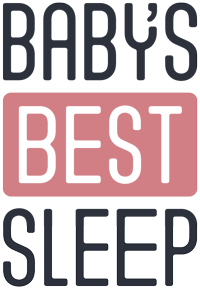March 6, 2025
The Benefits of an Early Bedtime
Here's the Convo:
Host: We all know the importance of sleep and the benefits it has to our health, but many of us struggle to get enough sleep. Going to bed earlier is one way to get more Zzz’s, but that’s often easier said than done. Our next guest has some practical tips to help you improve your sleep habits to feel better rested and recharged. So let’s welcome back sleep expert Amanda Jewson. Good morning, Amanda.
Amanda: Hello, good morning!
Host: Good morning. You look well rested. Now a lot of celebrities—it's a trend right now—are sharing on social media that they’re going to bed early for their health. Are there health benefits to going to bed earlier?
Amanda: Yeah, there are. And what's really cool is the science is backing this up. It's not just about how we feel. So there was a study in October of 2024 that just came out. Now, it focused on children. They looked at 88 children—and I kind of giggle when I talk about this study because they examined their feces. And when they examined these children, they looked at 88 kids who went to bed before 9:30 p.m. and found three key bacteria:
-
Akkermansia muciniphila – supports metabolism and the lining of the gut
-
Alistipes finegoldii – reduces overall inflammation and aids digestion
-
Holdemanella biformis – supports immune response
So these kids who were going to bed early had this bacteria. And we know that the kids who didn’t go to bed early suffered from more chronic illness, had more frequent wakings, and generally weren’t as well as their counterparts. So we can make some implications for adults knowing this information.
Host: Wow. I hope they’re going to do some studies with people of different age groups. But that is fascinating—that there’s such a direct connection between sleep health and gut health. That’s shocking. And then that gets to overall health with immune response and such.
Host: All right, so obviously going to bed earlier is beneficial in many ways, but some people swear they just can’t get to bed earlier than, say, 11:00. So what advice do you have for people about trying to get to bed early—or what time is "early," I guess, is a good question too?
Amanda: That is a good question. So you know, there's an adage—and it's not exactly perfect or true—but all hours of sleep before midnight count more. And the idea behind that is: as we get earlier into the morning hours—and remember, we’re creatures of the sun—when the sun is peeping up, our brains and our bodies produce different hormones at different times. Likewise, on the other end, in the early evening.
If you get to bed around 10 or 11, I think you’re in a good zone. And I’m speaking for adults—children generally do well with earlier bedtimes between 6:30 and 9:00 depending on their age. And I agree, going to bed earlier is hard. Bodies don’t like to go to bed earlier. So you want to set a routine—something that you’re doing outside of your body that when you do it, your body goes, "Oh, sleep is next."
And everyone hates this—but you’re going to limit screens. Put away your phones, TVs. The blue from your screen tells you to stay awake. We’re all on screens at all hours, so this is a hard one, but it really is key.
Think about gut-friendly foods. If you can’t go to bed earlier, think about how we can increase our microbiome diversity through things like yogurt, high grain foods—having those foods may aid in that gut bacteria anyway.
Host: Fascinating that there’s that sleep-gut connection and that diet can impact our sleep too. Fascinating.
Host: All right, well let’s throw in another challenge—we’re going to spring forward this Sunday, resulting in losing an hour of sleep. How do you recommend people adjust so that they can try to have as little impact as possible on their sleep?
Amanda: Yeah. Whether you’re trying to go to bed earlier or for daylight savings happening this Sunday—this one’s a confusing one because our clocks go forward, right? So we think we’re going to bed later, but we actually go to bed earlier. Your 9:00 p.m. this week will be 10:00 next week—and that’s hard for bodies.
Start now. Put yourself to bed 15 to 30 minutes earlier—literally right now. As you go through the time change, so after Sunday, try to get outside as much as you can. Get sunlight on your face during the daytime hours. Get nighttime exposure—outside at night. That’s going to again re-regulate your hormones to do what we want it to do at the right times: wake you up in the morning and help you go to bed at night.
And if needed—I very rarely recommend melatonin use—but for adults only: a very low dose, 1 mg in those early hours can help prep your body to produce that melatonin earlier. So if you’re going to bed at 9:00 "old time," take 1 mg of melatonin. That might help just remind your body, "Hey, can we do this on our own a little bit early" as we go through.
Host: All right. So fascinating. Oh—I have a question for you. This is just something I made up and wanted to ask. You’re in the world of sleep. What is your healthy sleep trend of the moment? Like, what’s your current obsession in the sleep world?
Amanda: Oh, you know—it’s funny. I’m doing another segment on this elsewhere. There are a lot of things online about weighted blankets, weighted masks. The idea around that is the increased weight produces feel-good hormones like oxytocin. So we can put stuff on your face and on your body—even for 15 to 20 minutes—and we’re starting to see actual evidence and studies showing that it aids in sleep onset.
Sleep onset is the amount of time it takes to fall asleep. And these are easy little comfy things—you have a weighted blanket, you sit on your couch, watch Netflix (not too close to the TV), but you’re going to feel those oxytocin and feel-good hormones. It might actually help you fall asleep a little bit easier.
Host: There you go. Great tip, right? Amanda, thank you so much for joining us this morning.
Amanda: My pleasure. Anytime.



